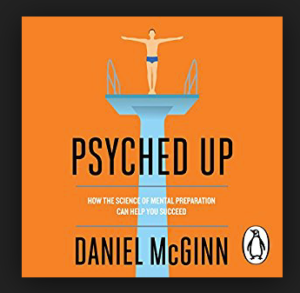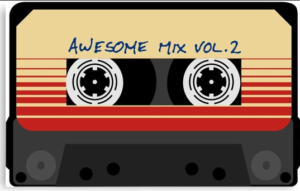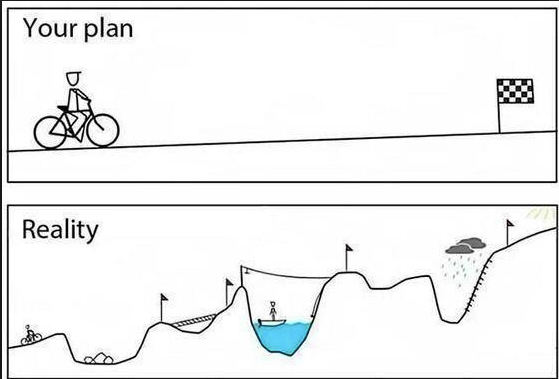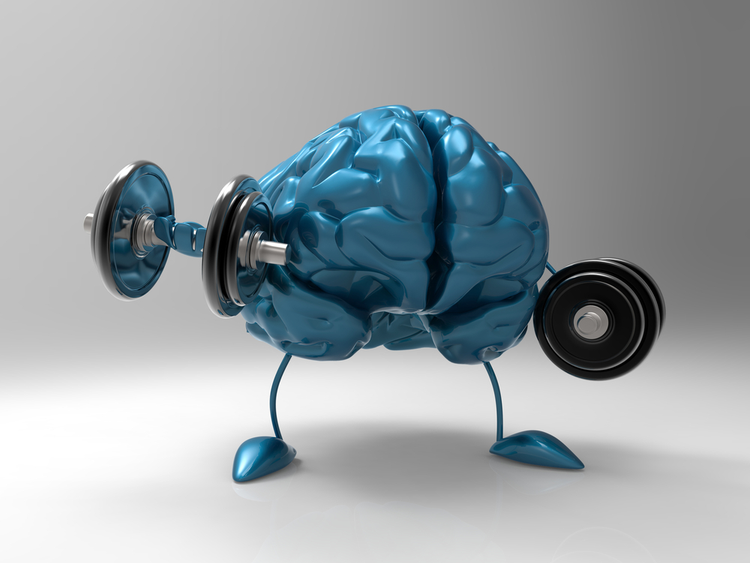Mental preparation has long been a focus of elite athletes. They know the power in pairing their skills with a solid headset to achieve results. Business professionals can benefit equally from strong mental preparation. It sharpens performance and ensures you deliver in the most critical of moments.
Being mentally prepared is essential for athletes, entertainers and anyone in pursuit of absolute peak performance. As a business leader, you also want performance excellence. While the field of play is different, rituals used by elite performers to get mentally prepared can benefit you immensely.
For any of us, success over time is a stringing together of defining performances. How did you perform to accomplish a goal? Dan McGinn (I’ll introduce in a minute) captures the essence of this idea of evaluative moments:
As the nature of work has changed, many professionals’ success or failure is now less dependent on repetitive daily tasks and instead based on a thin slice of evaluative moments. -D McGinn
Thin slices indeed.
The Magic Of Evaluative Moments
Sometimes it is brutally apparent other times hard to discern as you pass through an evaluative moment.
Early in my career, I presented at an education event for our clients. I was beginning to come into my own as a public speaker, but it was a big deal for me to speak at something such as this.
The presentation was on a technical topic, and my job was to translate into relatable terms. I felt pretty good about the performance as it unfolded and even better as the feedback presented after. I say this not to pat myself on the back but rather because it influenced my career progression.

The regional leader for my company attended. We had a great conversation after the session. It turned out to be one of many for us. From that point forward we built a strong rapport.
He gave me my first real break into management. It was one where he took a chance on me.
With the gift of time and distance, I now know that presentation was both an evaluative moment and a catalyst in my career.
One + One = You Are Prepared
Preparation is one part content – what are you going to say, present, pitch or negotiate. The second component is mental preparation – what’s your headset relative to the task in front of you.
One without the other doesn’t get it done! Optimal performance requires addressing both dimensions.
For this discussion, we will push into the second piece. How do you help yourself prepare mentally? And what lessons about fruitful preparation can you borrow from elite performers?

The Science Of Being Mentally Prepared
Dan McGinn’s book Psyched Up – How The Science of Mental Preparation Can Help You Succeed translates lessons from sports, entertainment, and medicine to business settings. He outlines two elements of mental preparation as critical 1) confidence and 2) managing your energy.
Confidence is the positive mindset that underpins the ability to repeat performing at a high level.
Managing your own energy is equal parts managing stress or anxiety and building the positive feeling or vibe of being “fired up.”
Rituals, routines, and even superstitions play an essential role in the overall preparation process. Elite performers, often famously, use rituals to increase confidence and find the right energy balance. Additionally, visualization and mental rehearsals are regularly used.
Your Turf
You may not think about it this way, but you are called on to perform regularly. These big moments include:
- A presentation to your manager (& his peers)
- A sales pitch to a massive potential customer
- A pep talk for your top salesperson holding a competitive offer
- A conversation with a client seeking to terminate your services
- A critical fee negotiation
- Final interview for a job you very much want
For each of these, feeling confident, managing your nerves and being appropriately psyched up, yield positive benefits.
Two footnotes:
- Not every situation carries the same level of importance. You can’t prepare for everyone the same or as if it is THE most important.
- Be mindful of how your audience sees the meeting/presentation versus the importance you perceive. If your audience attaches greater import than you, the result can be consequential.

Review Your Greatest Hits
One technique used by the elite performers McGinn studied is the idea of reviewing your so-called greatest hits. And yes, you have a soundtrack.
Presentations, meetings, writings – whatever – where you nailed it. Replaying and remembering boosts your confidence and ensures you are mentally prepared. It gets you in the right frame of mind.
When you face a critical performance, think about like situations from your past. Let yourself go quietly (or loudly) back to that place. Think about how you did it and what it felt like to perform. This helps set you up for a repeat performance.
Don’t Worry If You End Up Talking To Yourself
As long as it’s the right conversation, talking to yourself is not only ok, it’s a useful tool in getting mentally prepared.
Self-talk is the conversation we have in our head. All of us! It can be either positive or negative. Athletes work on maximizing the positive and quieting the negative self-talk.
Regarding business and not surprising, a study reported by Psychology Today laid out the impact of “constructive” versus “dysfunctional” self-talk.
When it comes to work-related outcomes, what a leader says to him/herself does indeed seem relevant.

Routines To Psych You Up
Sports psychology research suggests that pre-event rituals improve performance. You see examples of this watching almost any kind of sport. Less obvious but equally important are the routines of surgeons and performers.
Pre-performance rituals in business have equal impact. I have seen elaborate and even humorous rituals before sales presentations. They make a visible, positive impact on the sales executive being who he needed to be. It revealed itself in confidence and well-harnessed energy, two prerequisites for winning in sales.
Leading up to and day of an event, rituals around the following are typical:
- What you wear
- What you listen to or watch
- Who you spend time with
- What information you take in
- What you eat or drink
- How you spend your time in final preparation
- The last minutes before performing
Rituals can be loud and out there or they can simple, subtle and only evident to you. They are habits that cue you mentally and physically to signal, “I’m on, and I’m ready.”
What’s most important is identifying routines that work for you – to help you focus and keep your energy level in balance.

The Mix Tape Never Disappoints
So for me, four rituals made a difference when preparing for something “big”:
- Inspiration – I bookmark quotes on my phone that inspire me relative to whatever is upcoming. I reviewed during the lead-up.
- Music – Leading up to significant events or pitches, I built a playlist. I walk every morning. The few days before and day of it was always this playlist over my regular podcasts.
- The uniform – I always wore some form of black or blue dress and serious shoes. It had to be something I felt great wearing.
- Something silly – I would hit a wall and not be able to prep any further. Humor and poking fun at something always loosens me up. I always seemed to find something.
In keeping with this post, these behaviors helped me feel good, confident, psych me up and at the same time a sense of calm.
Some of this people saw if they watched me – some of it I suspect not.
When You Are Done, Stop
A point of guidance from the experts is to give yourself some time and space right before you go on. More, in this case, preparation, isn’t always better.
In the corporate world, a good example is to stop looking at notes, slides whatever you are using to prep the content. Your brain needs some time to wander. If you have done the work, it will all kick in as it needs to and refreshed.
Also, if you are a leader or influencer on a team, give your team permission to do the same. Most people are dying to laugh at something when they are nervous. And it doesn’t have to be wildly funny.
Not only will it loosen people up but it shows a “we got this” like confidence.

Expect The Unexpected
One element of preparation is knowing that despite your very best efforts, you can’t control everything. Something may go off script or downright wrong.
Part of preparing includes mentally grasping that things will go wrong and you will go under, over or around as needed.
Your weapon — composure. Staying within yourself allows you to call upon all the confidence and experience you bring to the setting.
Plus it’s super appealing! Watching someone hold it together is impressive and makes you root for their success.
The Home Stretch
Mental preparation is a tool for you to use in the here and now and an opportunity to help maximize your potential in those defining moments.
Take stock.
Are you devoting time to the mental side of preparation as you are the content? Is it helping you perform at your peak? If no or not to the extent you would like — retool your approach and think about your rituals.
Be intentional about whatever gives you confidence and harness your best energy.
Then it’s game on!
There is so much available to geek out on this topic, here is a list of resources you can watch, listen to and read.
QUESTION: What techniques do you use to get mentally prepared?

